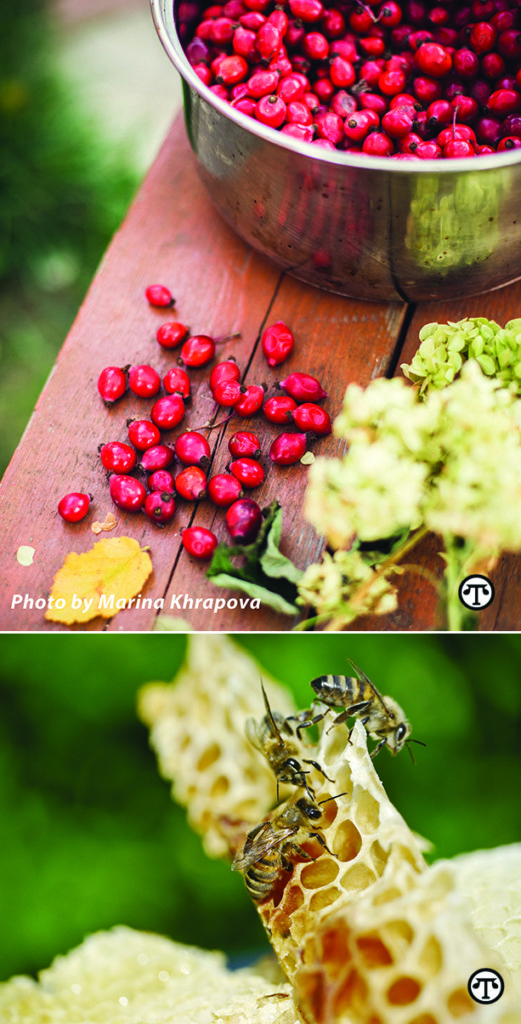“Bee” Thankful for Pollinators

(NAPSI)—When you gather with family or friends around the table this holiday season, consider just how much pollinators contribute to your favorite dishes.
Whether you’re recreating your grandmother’s famous pumpkin pie or forging new traditions in the kitchen, honey bees and butterflies are essential to the bountiful harvests that fill tables and spread cheer. As you dig into your favorite holiday dishes, take a moment to “bee” thankful for pollinators and the nuts, fruits and vegetables that depend on them to grow.
Refreshments
Many go-to holiday drinks would be lost without pollination. You can thank pollinators for pumpkin spiced lattes and hot apple cider. Nutmeg—the secret ingredient in eggnog—also grows thanks to pollinators. Even some plants that are self-pollinating, such as peaches, rely on pollinators to grow. If you’re looking to try something new, consider adding peach puree to your champagne for festive Bellinis.
The Main Course
Pollinators help make your table more “green” in every way, whether you’re dining on brussels sprouts or a green bean and onion casserole. Whether your turkey comes with “stuffing” or “dressing,” it will go well with cranberries—one of many fruits reliant on pollinators.
Dessert
Contemplate the importance of pollinators over a slice of pumpkin, cherry, blueberry or blackberry pie. Along with the vanilla you may add to the pie filling, these can be added to the list of plants requiring pollinators’ services.
Feed a Bee
Honey bees and other pollinators play a significant role in pollinating many fruits and vegetables we eat each day, so it’s imperative we help feed them, too. Feed a Bee, an initiative of the Bayer North American Bee Care Program, increases pollinator food and habitat by supporting local groups who plant wildflowers in their own communities across the U.S. To date, Feed a Bee has supported nearly 180 organizations in all 50 states by providing more than $700,000 in funding to create or expand pollinator gardens.
What You Can Do
Anyone can play a role in supporting pollinators. For one thing, you can educate friends and family about the important role of pollination in many foods they eat. For another, you can bring the bees to your yard by planting:
• Lavender
• Coneflower
• Rosemary
• Sunflower
• Sage
• Lamb’s ears
• Catnip
• Bells of Phacelia
• Redbud
• Black-eyed Susan
• Aster
• Oregano
• Verbena
• Yarrow
Learn More
For further facts about bees and how you can support pollinator health, visit www.FeedABee.com.

“Feed a Bee, an initiative of the Bayer North American Bee Care Program, increases pollinator food and habitat by supporting local groups who plant wildflowers across the U.S. http://bit.ly/36MEfuh”
